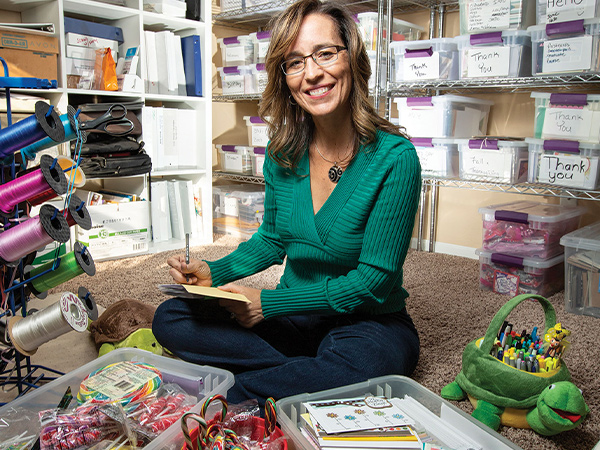AACR Grant Propels Progress in Immunotherapy Research
Using funding from the AACR, early-career investigator Marco Ruella, MD, found a way to improve immunotherapy for B-cell acute lymphoblastic leukemia.
A grant from the American Association for Cancer Research (AACR) helped Marco Ruella, MD, develop a new approach to immunotherapy that could give hope to patients whose disease had evaded prior immunotherapy and gone into relapse.
After obtaining a medical degree and working in his native Italy, Dr. Ruella was in the United States as a postdoctoral fellow in hematology at the University of Pennsylvania. He applied for the AACR-Bristol Myers Squibb Oncology Fellowship in Clinical Cancer Research in 2015, and he got it.
“As a junior postdoc, coming from abroad, you’re always trying to understand if the research that you do has an impact,” he said. “So, for me, when I applied for the AACR postdoctoral fellowship, it was also a way for me to understand if my research was significant and innovative.”
The AACR-BMS grant enabled Dr. Ruella to dig deeper into a promising area of cancer research: immunotherapy, which includes using genetically engineered cells known as chimeric antigen reception T (CAR T) cells to enlist the body’s immune system to fight the cancer.
“CAR T-cell therapy is a way to engineer the immune cells of a patient, sort of to teach them how to fight cancer,” Dr. Ruella said. “A big focus, being a hematologist, is to use that technology for lymphoma, myeloma, and leukemia. In general, we are interested in improving outcomes of cancer patients using T-cell directed immunotherapies.”
Dr. Ruella and his team investigated B-cell acute lymphoblastic leukemia (B-ALL) and the problem of relapse after treatments that target the antigen CD19. Twenty to 30% of patients suffer relapses in which CD19 has disappeared from cancer cells, making the cancerous cells invisible to further CD19-specific immunotherapy. This is a phenomenon known as antigen escape, and it leaves doctors with few effective therapies to treat the relapse.
Dr. Ruella’s team searched for another target that might stay put, and found it in CD123, a protein found on the surface of cells that are part of the immune system. They found that CD123 was retained in B-ALL that relapsed after CD19-targeted CAR T-cell therapy. Further, they found that a CAR T cell aimed at CD123 was strongly active against the disease.
With funding from the AACR-BMS grant, Dr. Ruella conducted experiments in animal models and showed that using CAR T cells to target both CD19 and CD123 was effective against the disease and also prevented disease relapse. Dr. Ruella and his team published their findings in the Journal of Clinical Investigation in October 2016, paving the way for development of therapies that would be effective in humans.
“Almost 10 years later, the concept that you need to target more than one antigen is pretty well established,” he said. “But at that time, it was a very early concept.
“It takes time for these therapies to get from mice to humans,” he added. “You need preclinical studies to generate these therapies. And that’s exactly what the AACR supports with these fellowships.”
The grant also gave him a shot of confidence.
“The fact that a big and important society like the AACR was betting on my career, was saying, ‘Yes, what you do is meaningful, we want to support you,’ that had a huge impact on my decision to stay in the U.S. and pursue a career in cancer immunotherapy,” he said. “It was also a boost of confidence that I can actually get funded from peer review and actually make an impact.”
The research gave Dr. Ruella a track record he could use to apply for funding from the National Cancer Institute.
“That was a dramatic advancement for my career, because it really led to the independent position that I then obtained a few years later, in 2018,” he said. “And the project of the [federal grant] was a continuation of that initial AACR fellowship.”
Dr. Ruella has gone on to become an assistant professor of medicine (hematology-oncology) at Penn’s Perelman School of Medicine and scientific director of the lymphoma program at the Hospital of the University of Pennsylvania.
“Without funding,” he added, “we wouldn’t be able to do anything.”

